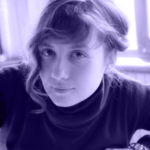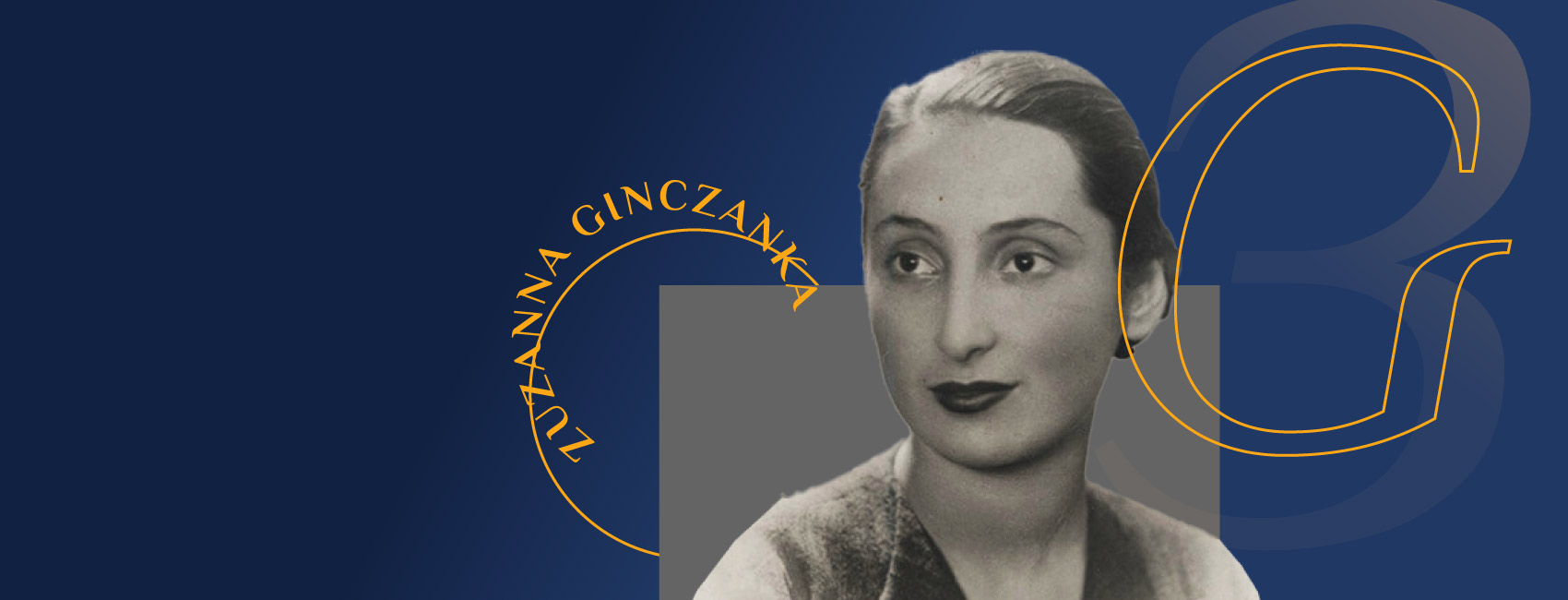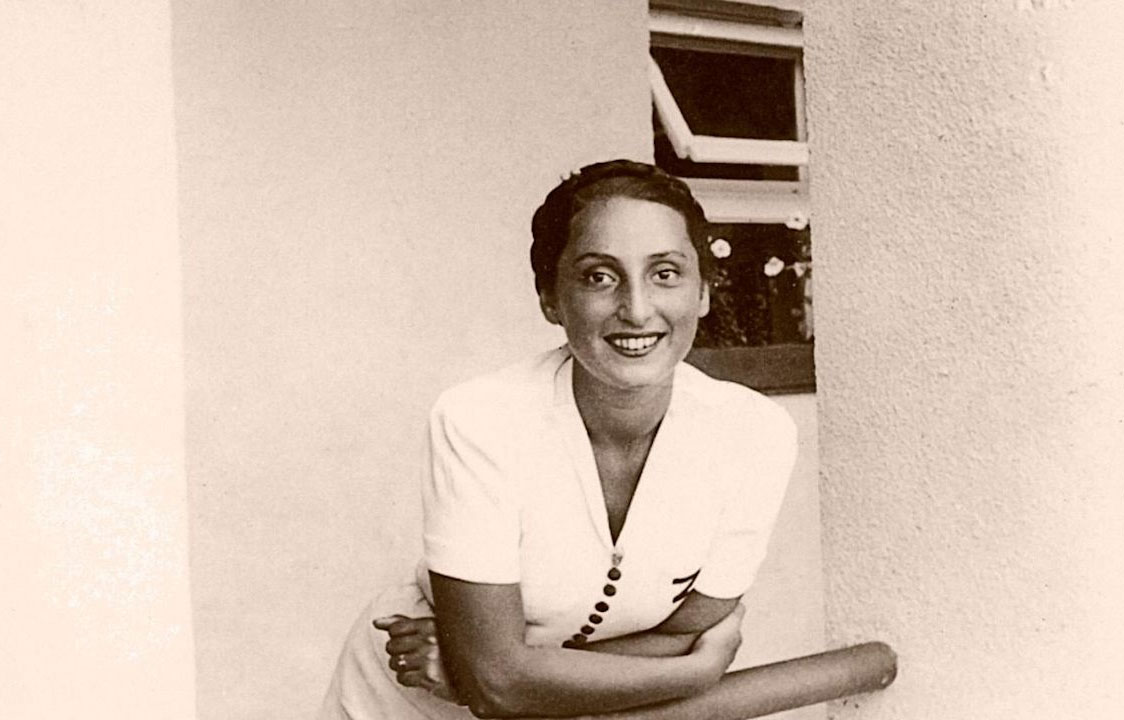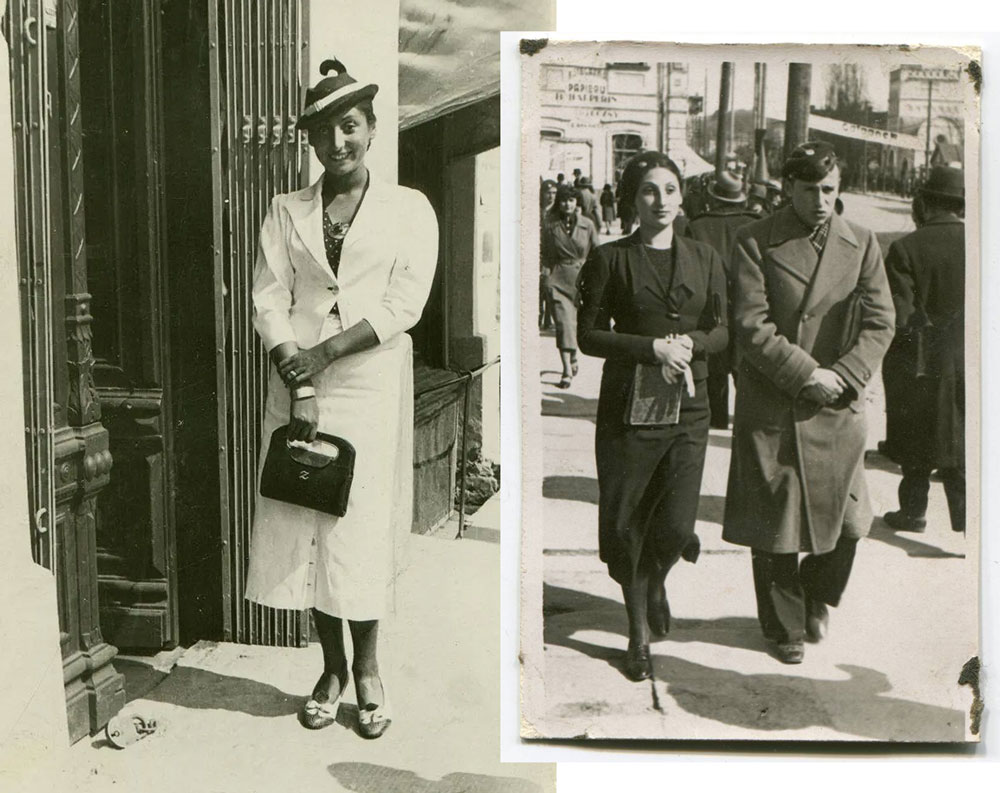Zuzanna Ginczanka's centaurs, galloping at the intersection of three cultures
Zuzanna Ginczanka published only one collection of poems in her lifetime (On Centaurs, 1936), but her work became a sensation in Polish literary circles. A Jew by origin, she was born in Kyiv, lived in Rivne for a long time, and left her mark on several cultures. Her poems drew much attention as the centenary of Ginczanka's birth was recently marked in Ukraine.
A stop near Rivne
The beginning of this piece was supposed to be quite different until my bus broke down near Klevan, not far from Rivne in the Volyn region, as I was returning to Kyiv from Krasnogruda. This Polish village is located almost on the border with Lithuania and features an old estate. Hidden among the greenery of the local park, it was an important place for the Polish poet Czesław Miłosz. (His poetic story about the house, The Issa Valley, immediately springs to mind. In it, he describes the places of his childhood with the delicacy only he possessed.) The amaranth gable of the house features a quote by Oskar Miłosz, a French poet and Czesław's uncle: "Woe to him who sets out on a journey and does not return." The building now houses the International Center for Dialogue of the Pogranicze Foundation: a museum, library, bookstore, artists' residence, café, and publishing house.
In one of its publications, I saw her — a girl in a hammock at a summer cottage in Klevan around 1930. A year later, this young lady would publish her first poems, "In Defense of Poets" and "Vacation Banquet," in the high-school newspaper Echa Szkolne. Her recognizable, characteristic vitality came through in these first samples of poetry: "…I drink the clear sky from a jug, the foam of the clouds, with my eyes gazing into the blue; / The waiter-summer brings a melon on the tray of the sun."
This is Zuzanna Ginczanka, a Polish poet of Jewish origin who was born in Ukraine. "Yeah, thanks for the stop, Zuza," I thought ironically on the highway near Klevan, naively hoping that my bus would get a quick fix and the trip would continue. But alas. I had to get to Rivne on my own. The forced stop seemed to tell me: "Look around." After all, this was where the poet spent her childhood years.
Zuzanna Polina Ginzburg was born on 22 March 1917 in Kyiv. Her parents fled the revolution-gripped city soon thereafter, moving to Rivne. I didn't have time to walk around downtown Rivne after the mishap with my bus. I remembered its outlines well from when I was a first-year student at the Ostroh Academy and often visited the city. The house of Abram and Klara Sandberg, Zuzanna's grandparents who ran a pharmacy and a shop there, was located on what is now Soborna Street.
What were the house and the girl in it like? The Polish writer Kazimierz Brandys wrote in a letter to Isolde Kiec, a researcher of Ginczanka's works, apparently referring to Zuzanna's own memories:
...she decorated her grandmother's shop like an angel. She would stand there in a white dress with wings, a silvery or perhaps golden sash across her forehead and her feet in white shoes.
This angel — Sanna, as they called her at home — was left without parents early. Her father, Simon Ginzburg, left the family when she was still very little and immigrated to America, while her mother, Cecylia, remarried and went to Spain.
Another author, Jan Śpiewak, who was originally from the Kherson region and also lived in Rivne for some time, described his first glimpses of Zuzanna and her house as follows: "The first two impressions from that time are etched in my memory forever. The first one is of the house where she lived and its peculiar atmosphere. It was a two-story building that smelled of medicine, ointments, cosmetics, and dried lime. The rooms were crammed with furniture: old-fashioned chests of drawers, heavy armchairs, funny tilted tables, and sofas. The furniture pieces made the interior narrow and overstuffed. Several generations of townspeople had to collect them in certain sequential chaos to finally create this strange accumulation of almost unnecessary objects. Occasionally, the rooms were filled with women, mostly elderly, whom I was unable to meet for several years. The second impression was that of Ginczanka's eyes. One was green and the other one blue, smiling and ironic. One was sad and the other mocking." These eyes evoked images in all her acquaintances, inspiring even the poet herself, who had them fixed, "like pins," on the world around her.
Russian was spoken in the Sandbergs' house, but Polish was their language of education and self-realization. Yaroslav Polishchuk, a literary critic who translated Ginczanka's poetry for the Ukrainian-language edition Zhar-Ptakh (Firebird), notes: "We do not know for sure the motives for this choice and can only guess. At that time, Rivne had Polish, Jewish, Russian, and Ukrainian schools, but Zuzanna became a student at the Polish state gymnasium named after Tadeusz Kościuszko. If we are to believe her memories, the choice of language was due to her attachment to a friend who spoke Polish. Presumably, there were other motives." These could have been childhood pursuits, adult ambitions, and her older relatives' views on the prospects offered by the chosen path — ubi bene ibi patria 'Home is where it's good.' Young Zuzanna offered the following thoughts on the topic: "…my language — a fruitful, fertile, good country. Must I cut it into a square program — like a banner?"
In short, she felt sufficiently comfortable in Polish to write and be heard. The latter, by the way, was very important. After all, she did not let her poetry gather dust; instead, she immediately sought recognition and praise, which she soon received.
Her school publications were marked by a search for a fitting pseudonym: Sonny Girl, Zuzanna Ginzburgzanka. Her later poems, masterful and mature, were signed with the final and most "Polish" pen name, Ginczanka.
Her choice of identity is somewhat reminiscent of Raisa Troianker, a Ukrainian poet from Uman and a member of the Kharkiv-based group "Avant-garde." She chose to write in Ukrainian rather than, say, Yiddish, and her works were a quite vivid, albeit short-lived, phenomenon in Ukrainian culture. Troianker is the only female author in the anthology Ukrainian Avant-Garde Poetry: 1910–1930s, which I had the honor of co-editing. Ginczanka and Troianker also have other similarities, such as their rebellion against orthodox and patriarchal traditions, their free will, and the dream of realizing themselves in art beyond the framework and roles defined by small-town life.
In Rivne, Ginczanka became a poet, subscribed to magazines published in Warsaw, and won a competition in one of them, Wiadomości Literackie, for which she received praise from Julian Tuwim, the living classic of Polish literature. She also communicated closely with Józef Łobodowski, who later reminisced about their love in the collection Pamięci Sulamity (In Remembrance of the Shulamite Woman, 1987) dedicated to Ginczanka.
Life in Warsaw: from acceptance to estrangement
After finishing her school education, Ginczanka studied pedagogy at the University of Warsaw. She finally found in the Polish capital the scale of literary life she so desired: soirées, intellectual debates, readings, publications, and literary cafés. In the Mała Ziemiańska café frequented by the Warsaw literati, she spent time in the company of Witold Gombrowicz, while Julian Tuwim called her eyes "Haberbusch and Schile," a reference to the two popular brands of dark and light beer at the time. She immediately became "one of them." I often read about her unusual beauty ("Jewish gazelle", "a star of Zion"), but appearance and charisma alone were not enough to make a name in poetry.
Inspired and confident in her abilities, Ginczanka debuted in Warsaw in 1936 with her only collection of poems, On Centaurs, which immediately garnered many positive reviews. The image of a centaur is a symbol of the author herself:
Their passion focused and wise
and their wisdom smoldering like rapture
I found in a harmony dignified
and I alloyed them in waist and heart.
— Translated by Alex Braslavsky.
She published poems in the Skamander magazine, the satirical magazine Szpilki, etc. Everything would have turned out wonderfully if it had not been for the increasingly aggressive antisemitism in interwar Poland, which quickly evolved into widespread persecution. Then came World War II, the Nazi occupation, and the Warsaw Ghetto. Outside, people would continue to go around on a carousel as in Czesław Miłosz's famous poem "Campo di Fiori."
Ginczanka masterfully conveyed this tension in "The Hunt". She was an "outsider" both as a poet and a Jew in an environment that admired her talent just a short time earlier. Did she want to emigrate? No. In 1939, she went to Rivne to visit her relatives, leaving manuscripts, documents, and photographs behind in her Warsaw apartment. These were saved by her friend and are now kept in the Museum of Literature. That same year, she rhetorically asked in the poem "Commentary on the Margin": "Will I have the upper hand, / Or be defeated?"
A poem as evidence in court
When World War II broke out in September 1939, Zuzanna went to Lviv, already under Soviet rule, and tried to adapt to the new realities. She joined the local Writers' Union and even translated from Ukrainian, for example, Pavlo Tychyna's poems. In Lviv, she married her friend, art critic Michał Weinzieher. This event was received ambiguously in her milieu, but she and Michał seemed to need mutual support in the face of danger and closeness as an escape from loneliness.
On 30 June 1941, power in the city changed hands again. Ginczanka had obtained a fake ID and was forced to hide from the German Nazis and their accomplices. Friends helped her while enemies lay in wait. Zofja Chomin, a neighbor, reported her to the Nazis, but Ginczanka was fortunate to escape. She wrote the incredible poem "Non omnis moriar," an unprecedented testimony that would serve as evidence against Chomin in court later, in 1948. The quote from Horace, "I shall not all die," which she chose for the title, brings a majestic, almost organ-like sound of the spirit in the face of death and human pettiness:
Non omnis moriar. My grand estate —
Tablecloth meadows, invincible wardrobe castles,
Acres of bedsheets, finely woven linens,
And dresses, colorful dresses — will survive me.
I leave no heirs.
So let your hands rummage through Jewish things,
You, Chomin's wife from Lvov, you mother of a volksdeutscher.
May these things be useful to you and yours,
For, dear ones, I leave no name, no song.
I am thinking of you, as you, when the Schupo* came,
Thought of me, in fact reminded them about me.
So let my friends break out holiday goblets,
Celebrate my wake and their wealth:
Kilims and tapestries, bowls, candlesticks.
Let them drink all night and at daybreak
Begin their search for gemstones and gold
In sofas, mattresses, blankets and rugs.
Oh how the work will burn in their hands!
Clumps of horsehair, bunches of sea hay,
Clouds of fresh down from pillows and quilts,
Glued on by my blood, will turn their arms into wings,
Transfigure the birds of prey into angels.
— Translated from the Polish by Nancy Kassell and Anita Safran (*Schupo is short for Schutzpolizei des Reiches, the uniformed police of the Third Reich.)
When Lviv became too dangerous, she moved to Kraków, where she kept changing addresses. In January 1944, at the age of 27, she was arrested by the Gestapo and executed in the Płaszów concentration camp near Kraków in the spring, together with many other prisoners. "I did not arise from dust, and I shall not return to dust," Ginczanka wrote. Like the Perseids in August, the words of one of the most brilliant poets of the interwar period shine brightly before us today.
 Yulia Stakhivska
Yulia Stakhivska
Ukrainian poet, illustrator, journalist.
Originally appeared in Ukrainian @Chytomo
Translated from the Ukrainian by Vasyl Starko.
This material is part of a special project supported by Encounter: The Ukrainian-Jewish Literary Prize. The prize is sponsored by the Ukrainian Jewish Encounter (UJE), a Canadian charitable non-profit organization, with the support of the NGO "Publishers Forum." UJE was founded in 2008 to strengthen and deepen relations between Ukrainians and Jews.






















